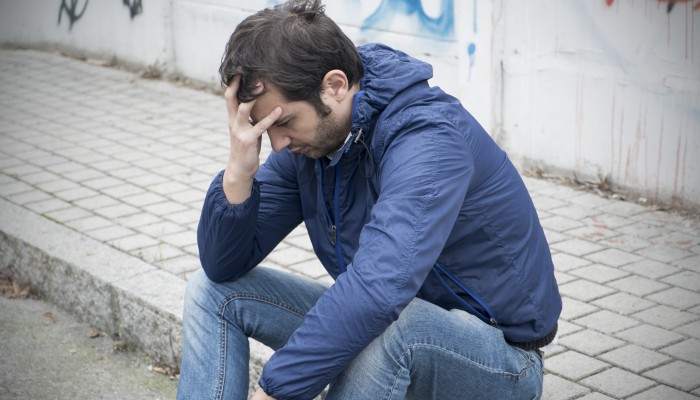03 Jun Heroin Withdrawal Timeline
Table of Content

Understanding the overall heroin withdrawal timeline has never been more important as the number of people heroin affects has risen over the past few years and continues to be viewed as a nationwide problem. According to the National Institute on Drug Abuse, approximately 467,000 Americans are addicted to heroin. The problems with drug abuse have grown so significantly that our government leaders are calling it a national crisis.
Heroin is a drug that is not segmented to one specific area of the country. It does not hold fast to one particular race, class, or age. In certain areas, heroin abuse may have begun in the inner city neighborhoods, but now have quickly grown out into the affluent suburbs that surround them.
Many people who have become addicted to prescribed pain medication have turned to heroin to feed their addiction. As of 2014, nearly 2 million people reportedly suffer from a substance abuse disorder including opioids.
Each person’s drug abuse story is different, which makes each person’s recovery journey different, too. Even when people face the same type of symptoms and their challenges are similar, the story isn’t the same and can’t be used to compare one heroin withdrawal experience to another.
When a person is detoxing from drugs, especially heroin, the timeline can vary based on a number of factors. How much and how long a person has been taking heroin can create a huge impact on the withdrawal process. Generally speaking, a heroin detox lasts up to a week.
How long does it take to withdrawal from heroin? The withdrawal symptoms start between 6-12 hours after the last dose. The first few days of heroin detox are the most extreme. Withdrawal symptoms can last up to three days and over the span of the week may lessen over time. Due to these painful symptoms and the powerful cravings for the drug-induced high, addiction to heroin is not an easy feat to overcome.
As the symptoms begin to subside, it still doesn’t make handling detox any easier. The cravings and anxiety associated with heroin withdrawal is intense and can beyond the seven days. Addicts who aren’t in a strong place may find it difficult to overcome such physical and emotional pain alone. Those who try to detox on their own often fail because of the aftermath severity of heroin withdrawal. A support system is the lifeline necessary for a successful outcome.
What to Expect During Heroin Detox
If you’re wondering what to expect during the seven-day period of heroin detox, there is nothing that can prepare you for the experience as it differs from person to person. As mentioned before, the first few days will be the ones where symptoms are most severe and painful. People going through heroin detox may experience:
- Nausea;
- Vomiting;
- Muscle aches and spasms;
- Sweating;
- Shaking;
- Nervousness and anxiety; and/or
In addition to being the worst, the first one or two days is often the most crucial as well as cravings are particularly strong. When people refer to “battling” addiction, it is a true fight of the body for sobriety. It is used to existing with drugs. To an addict, heroin use is the norm.
Heroin detox doesn’t come easily or without harm. Due to this, it’s not uncommon for addicts to experience relapses. The cycle of drug use will start again and addicts will have to fight back through the heroin withdrawal if they want to become sober. It’s not an experience a person will want to go through more than once, if necessary, which is why it’s important to be dedicated to detox and rehabilitation and lean on the support available.
The second phase of detox still has unpleasant symptoms associated with it such as abdominal cramps and vomiting, but it is not at the severity level like in the beginning. Although the body is feeling ill and exhausted due to ridding drugs from the system, it’s extra important during this time to maintain a regular eating schedule to help keep the immune system as strong as possible.
When a person has hit day six of withdrawal, the worst is nearly over. Though some people may experience less intense symptoms, there most likely be one or two more days of heroin withdrawal. At that time, it’s not as if a person can immediately return to their former life. It takes more than heroin detox in order to overcome addiction. There requires a steadfast dedication to sobriety that must be attended to as well.
Detox and Rehab: How Long is Long Enough?
Detox and rehabilitation go hand-in-hand, although they are different parts of the process. There’s not a set amount of a time a person can say will be efficient enough to detox from heroin. In most cases, research shows at least 90 days of professional supervision is necessary for heroin addicts to face their addiction head on and put plans into place to avoid relapse.
What determines a person’s rehab stay? A person’s age, frequency of drug abuse, and time span of drug abuse all make a difference. Also, rehab is dependent on each person’s needs. An addict who commits to rehab may not fully know what they need in the beginning, but must be the one ultimately responsible for taking action. Is inpatient or outpatient the right solution? Does the person need a detox facility only or a place to participate in treatment as well?
Heroin is an addictive drug. Despite what a person may believe, it’s not as though someone can quit using on a whim in one day simply because they want to, but they can make the commitment to start the detox and rehab process. Professional treatment is essential.
Heroin affects the whole body, the brain included, which changes during the course of addiction. As the drug passes through and is eliminated from the system, changes to the brain due to drug use can still continue after the initial detox is complete. Although the withdrawal symptoms are typically expected to last no more than a week, changes to the nervous system can and often do still take place.
Acute and Protracted Withdrawal Symptoms
While everyone is aware of the symptoms addicts face in the first hours and days of heroin withdrawal, there are also symptoms that occur in the later stages of detox. The name for these symptoms is called post-acute or protracted withdrawal symptoms (PAWS), which is defined as symptoms which persist beyond the initial timeline, or what’s referred to as acute withdrawal. Addicts suffering PAWS may experience similar symptoms as before, but they can also suffer from depression or dysphoria.
In fact, it is not uncommon for drug abusers to be diagnosed with mental disorders during the recovery period, which is referred to as a dual diagnosis or co-occurring disorder. It doesn’t necessarily mean that one disease caused the other, but there are connections between mental disorders and substance abuse disorders, which have similar effects on the mind and body.
This intense range of emotion during such a short period of time can wreak havoc on the body in both emotional and psychological ways, in addition to being physically exhausting. It’s yet another reason why supervised, professional detox and recovery options are best to help support those who need it most.

How to Ease Heroin Withdrawal Symptoms
Heroin addicts go far beyond the need to capture the “high” from the drug because now their body is dependent on it. They crave it, but also cannot function normally without it because of the addiction. Even knowing the typical withdrawal symptoms in advance, there is nothing that can prepare someone for the experience of detox.
Due to the extreme nature of heroin withdrawal, there are medications available to help with the pain. Methadone and buprenorphine are two, which need to be administered and monitored by a medically-trained person. In some cases, over-the-counter medication intended for achy symptoms can prove helpful, in addition to hot showers, and in some cases, acupuncture.
Acupuncture has been used as an alternative medicine for a variety of ailments and diseases for centuries. It is meant to help repair damaged neural pathways. It can also aid in reducing cravings and stress during detox and recovery from heroin.
None of these remedies are meant to work as well during the acute, first days of heroin withdrawal, but can be a source to help for the remainder of the detox period. Some methods may work better for others and some may not work at all. This is the time a counselor and support group is helpful to share anxious feelings and any setbacks during the process.
Heroin Withdrawal At Home
People are able to detox from heroin at home, although the success rate will differ from person to person. Regardless, it must be noted that heroin detox and recovery from drug abuse is a long-term process. It’s not something that can be handled overnight. Heroin withdrawal and recovery often requires several treatments coupled with counseling and in some cases, follow-up outpatient care. Due to these contingencies, detox in a professional facility is often looked upon as the most reliant path.
If the right answer for someone is to go through detox and recovery at home, an important recommendation is to have the process be medically supervised. Addicts who have never been through the detox process may not realize how intense the withdrawal symptoms are and may find it difficult to fight cravings. It can perpetuate a vicious cycle of drug abuse that involves attempts to quit and subsequent relapse. With professional assistance, it can decrease the chance of complications and improve the odds of an addict being able to quit permanently.
One of the extra challenges with trying to detox at home is temptation and backlash from negative influences. Even if a person has decided to get sober, it doesn’t mean everyone will feel the same way. There may be personal roadblocks leftover from a person’s drug lifestyle, which cannot contribute to recovery. Having a strong support system helps makes the process run smoother. Detox facilities have the experience and resources to provide proper care. Trusted friends and family members also play an important role throughout an addict’s road to sobriety.
Best Option to Safely Withdraw from Heroin
Positive support during this difficult time cannot be stressed enough. It is essential to the success of heroin withdrawal and ongoing sobriety. When this process is medically monitored, addicts are able to connect with those who understand drug addiction and can provide the most comfortable atmosphere in which to recover.
For those who dedicate their treatment as an inpatient stay not only benefit from this safe monitoring, but also from the emotional support and tools necessary as a person transitions from the detox stage to the recovery and rehabilitation stages.
Rather than focusing only disposing of the problem at hand, there is genuine interest in determining the source for the addiction and any triggers that may cause a person to go down a similar path. By truly understanding addiction and overcoming where it begins, once people leave inpatient care, they are better able to live their new lives without the temptation heroin once held over them.
Choosing a Heroin Detox Center
The government is stepping in and making urgent calls to action to increase the number of treatment facilities available to help people with addiction. There has been a plea for more funding, more awareness, and more help overall. It opens up the doors to more options for addicts and their families to choose from in order to receive the assistance they need.
Upon making the decision to get sober, treatment plans can be customized for each patient. Detox is the first step of care and is necessary to fully rid the body of heroin and its after effects. Following detox, the recovery period includes introducing a healthy lifestyle complete with support through group or individual therapy, assistance to reemerge into life post-heroin, and ways to achieve a more positive future.
If you or a loved one suffers from heroin addiction, know there is help for you 24 hours a day, 7 days a week through Georgia Drug Detox. It is our mission to be the reliable resource to help get your life back on track.
Sources:
Lautieri, Amanda. “Heroin Withdrawal Timeline, Symptoms and Treatment.” American Addiction Centers. 13 Mar. 2019. https://americanaddictioncenters.org/withdrawal-timelines-treatments/heroin
“Heroin Withdrawal.” Drugrehab.com. 25 May 2018. 13 Mar. 2019. https://www.drugrehab.com/addiction/drugs/heroin/withdrawal/
T., Buddy. “Understanding Drug Withdrawal Symptoms.” Verywell Mind. 15 July 2018. 13 Mar. 2019. https://www.verywellmind.com/what-is-withdrawal-how-long-does-it-last-63036






No Comments